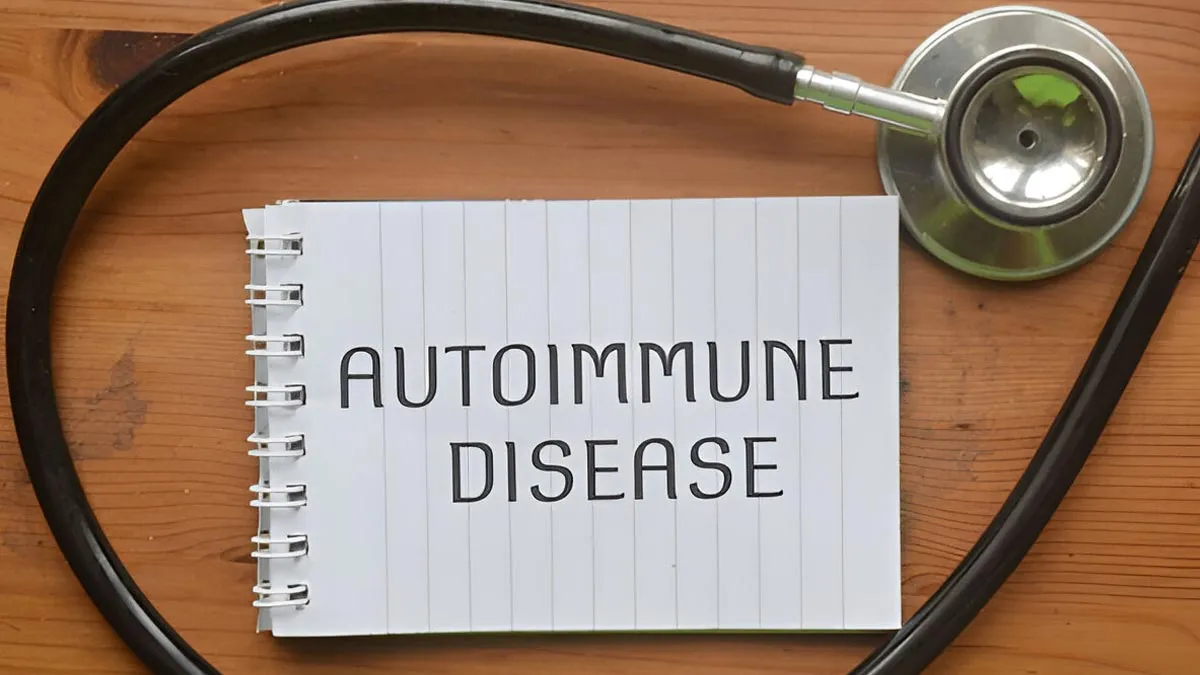
Autoimmune disorders are sometimes viewed as separate conditions, joint pain in rheumatoid arthritis, skin lesions in psoriasis, or systemic symptoms in lupus. But what many people, and even some patients, don’t realise is that these disorders don’t stop where the primary symptoms end. The immune system’s misfiring can quietly affect organs beyond its apparent target, especially the heart.
Table of Content:-
“Cardiovascular disease is not just a long-term risk in autoimmune patients; it can sometimes be the very first serious complication that brings a patient to medical attention. And that’s something we, as clinicians, need to talk about more,” said Dr Ravindranath Reddy DR, HOD and Senior Consultant - Interventional Cardiology, Gleneagles BGS Hospital Kengeri, Bengaluru, who explained the cardiovascular impact of autoimmune diseases.
The Heart-Autoimmune Connection

Autoimmune diseases occur when the immune system, instead of protecting the body, starts attacking its own tissues. This ongoing internal war creates chronic inflammation, one of the most damaging forces in cardiovascular health.
“Inflammation not only irritates joints or skin; it can disrupt the inner lining of blood vessels, accelerate plaque formation, and increase clotting tendencies. This underlying inflammation is why patients with autoimmune conditions face a significantly higher risk of heart attacks, strokes, heart failure, and sudden cardiac events, even at younger ages,” said Dr Reddy.
Systemic Lupus Erythematosus: The Hidden Heart Attacker
Among all autoimmune diseases, lupus is especially notorious for its impact on the cardiovascular system. Lupus can affect the heart in multiple ways, causing inflammation of the pericardium (the sac surrounding the heart), myocarditis (inflammation of the heart muscle), or endocarditis (involving the heart valves). Perhaps even more concerning is the early onset of atherosclerosis in lupus patients.
A 2025 study found that young women with lupus have up to a 50-fold higher risk of heart attacks compared to women without the disease. “This isn’t just theoretical, I've seen women in their 30s, with no other risk factors, come in with chest pain and end up needing angioplasty,” added Dr Reddy.
Also Read: Autoimmune Diseases That May Trigger Hair Loss: What You Need to Know
Rheumatoid Arthritis: More Than Joint Trouble

Rheumatoid Arthritis (RA) is classically a joint disease, but chronic inflammation doesn’t respect boundaries. The longer RA remains active, the higher the patient’s risk of developing coronary artery disease, heart failure, and atrial fibrillation.
"Interestingly, even when patients don't report chest pain, we sometimes find silent ischemia, reduced blood flow to the heart during evaluations. That’s because inflammation can subtly impair how blood vessels dilate, how well the heart pumps, or how the electrical system behaves," shared Dr Reddy.
And it isn't only the disease. Some RA drugs, such as steroids, can raise blood pressure, blood sugar, and cholesterol levels, posing additional cardiovascular risks if not well managed.
Psoriasis: A Skin Condition That Runs Deeper
Psoriasis, commonly dismissed as a 'skin problem,' is increasingly being recognised as a systemic inflammatory condition. "Severe psoriasis carries an independent risk for metabolic syndrome and coronary artery disease. The plaques on the skin may be visible, but inside the arteries, similar plaques are forming, narrowing vessels and raising the risk of heart events," explained Dr Reddy.
What's important here is that even younger patients with moderate to severe psoriasis, those in their 30s or 40s, can have vascular changes akin to someone a decade older. The inflammation doesn't stay confined to the skin. It moves silently, systemically.
Also Read: Are Children With Primary Immunodeficiency At Risk Of Autoimmune Diseases, Cancer?
What Can Patients and Doctors Do?
The first step is awareness. Both patients and physicians need to understand that autoimmune diseases come with cardiovascular baggage. It’s not enough to just manage joint swelling or skin plaques, we must look deeper. Here’s what we recommend in clinical practice:

- Early cardiovascular screening for patients with moderate-to-severe autoimmune disease, even in the absence of symptoms. This can include lipid panels, blood pressure monitoring, and sometimes advanced imaging if warranted.
- Aggressive handling of traditional risk variables. This entails managing smoking, high cholesterol, high blood sugar, and obesity early and regularly.
- Controlling disease activity is critical. The lower the level of inflammation, the lower the risk of heart disease. When administered correctly, biologics and DMARDs (Disease-Modifying Anti-Rheumatic Drugs) can help lower systemic inflammation and indirectly improve cardiovascular health.
- Monitoring medication side effects. While steroids and some immunosuppressants are important in controlling flares, long-term use can negatively impact heart health if not carefully balanced.
A Collaborative Approach Is Key
Managing the heart risks in autoimmune disease isn’t the job of one specialist. It requires a team effort, rheumatologists, dermatologists, cardiologists, and primary care providers all need to be on the same page. In some hospitals, we now have 'autoimmune-cardiology' clinics where these patients are jointly managed, and the outcomes are far better.
Patients, too, should feel empowered to ask questions about their heart health during consultations. If you’re living with lupus, RA, or psoriasis and have never had your cardiovascular risk assessed, bring it up with your doctor. The earlier we start screening and preventive care, the better the outcomes.
Bottomline
Dr Reddy concluded, "Autoimmune diseases don’t just flare in joints or on the skin. They can quietly weaken the heart, sometimes before we notice any outward signs. As specialists, we must connect the dots early and make heart health a central part of autoimmune care. Because saving joints or skin is important, but protecting the heart can save a life."
[Disclaimer: This article contains information provided by an expert and is for informational purposes only. Hence, we advise you to consult your professional if you are dealing with any health issue to avoid complications.]
Also watch this video
How we keep this article up to date:
We work with experts and keep a close eye on the latest in health and wellness. Whenever there is a new research or helpful information, we update our articles with accurate and useful advice.
Current Version